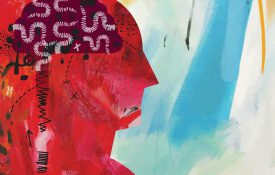-
Fake news grabs our attention, produces false memories and appeals to our emotions
“Fake news” is a relatively new term, yet it’s now seen as one of the greatest threats to democracy and free debate. In the Netflix documentary The Great Hack — which chronicled the rise and fall of Cambridge Analytica — we saw how Facebook data was used to target potential voters with insidious right-wing propaganda packaged as if it were news. ... The allure of fake news is therefore reinforced by its relationship to memory formation. A recent study, published in Psychological Science, highlighted that exposure to propaganda may induce false memories.
-
AI Can Outperform Doctors. So Why Don’t Patients Trust It?
Our recent research indicates that patients are reluctant to use health care provided by medical artificial intelligence even when it outperforms human doctors. Why? Because patients believe that their medical needs are unique and cannot be adequately addressed by algorithms. To realize the many advantages and cost savings that medical AI promises, care providers must find ways to overcome these misgivings
-
Don’t Underestimate The Impact (And Business Value) Of A Simple “Thank You” Note
Writing a thank you note is such a simple and easy gesture, we may actually undervalue its power, especially in the business world. A study published last year in the journal Psychological Science finds that there are several ways in which we underestimate the impact of saying thank you. First, we miscalculate how grateful the recipient is likely to be. Participants were asked to guess, on a scale of one to five, how happy someone will be to receive such a note. While senders typically guessed a three, recipients usually rated their response at a four or five.
-
The Dark Psychology of Social Networks
Suppose that the biblical story of Creation were true: God created the universe in six days, including all the laws of physics and all the physical constants that apply throughout the universe. Now imagine that one day, in the early 21st century, God became bored and, just for fun, doubled the gravitational constant. What would it be like to live through such a change? We’d all be pulled toward the floor; many buildings would collapse; birds would fall from the sky; the Earth would move closer to the sun, reestablishing orbit in a far hotter zone. ... Human beings evolved to gossip, preen, manipulate, and ostracize.
-

New Research From Psychological Science
A sampling of research about the effects of information timing on risky choices and on visual word representation in reading.
-

SSCP Award
Are you a member of the Society for a Science of Clinical Psychology (SSCP)? If so, you are eligible to apply for the annual SSCP student poster session at the APS Annual Convention. Cash awards

